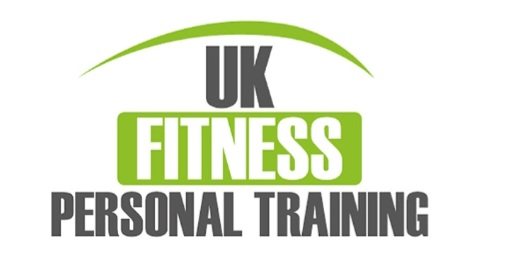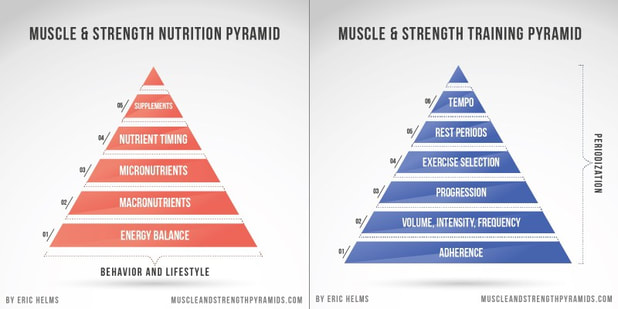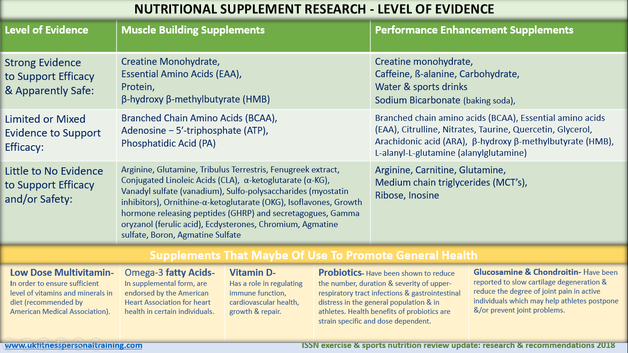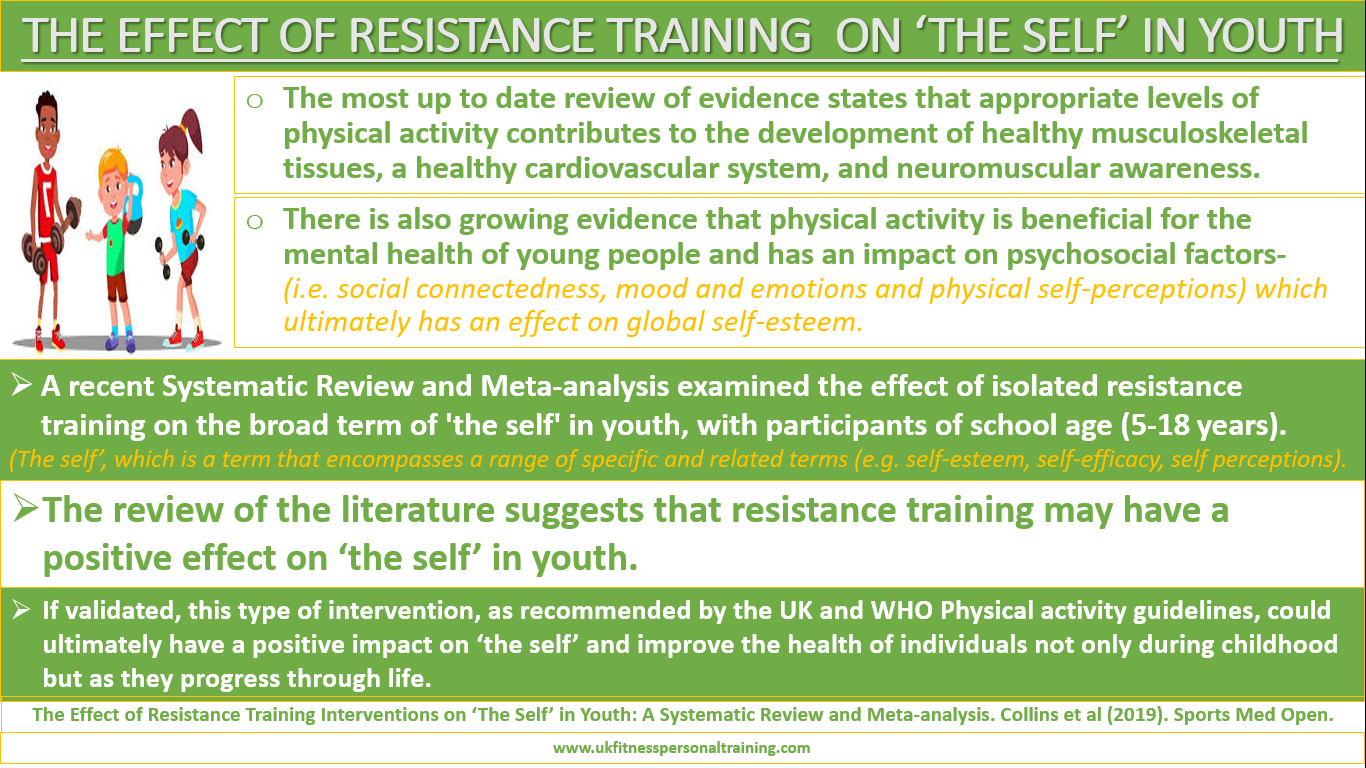 Many people now take supplements to help them with health and fitness. The supplement industry is one of the fastest growing industries in the world. In 2012 it was reported that nutritional supplements were producing about $32 billion in revenue in the US and it is projected to double that by topping $60 billion in 2021 according to the Nutritional Business Journal. The supplement industry is however filled with exaggerated claims and pseudo-science that are not supported by credible evidence. Many people can make the mistake of putting too much emphasis on supplement at the expense of a proper diet. Unfortunately, most diet supplements are overpriced or useless. If it seems too good to be true, it often is... If you are considering taking a supplement a few things to consider-
This blog will look at the research behind supplements taken from research conducted by the International Society of Sports Nutrition- exercise & sports nutrition review update & research recommendations. Many people will try to rely on supplements before proper training and diet setup, then struggle to reach their goals (say fat loss/health/muscle building). Proper nutrition and diet plan is the key. For fat loss energy balance is key and supplements is way down the list of priorities. A good example of hierarchy of importance for training and nutrition can be seen in the 2 charts below, from the Muscle and Strength Training Pyramid by Eric Helms. If we look at the chart we can see the nutrition and strength pyramids are divided up into a logical sequential pyramids of importance. The bottom and by far most important aspect for fat or weight loss and the foundation of a fat loss plan at number 1 is
So which supplements work, which one maybe helpful and which have little evidence to support how effective they are or are just crap? This is taken from The International Society of Sport Nutrition (ISSN)- exercise & sports nutrition review update: research & recommendations (2018). “Based upon the available scientific literature testing the efficacy and safety of the nutritional supplements discussed herein, all nutritional supplements discussed in this paper have been placed into three categories based upon the quality and quantity of scientific support available”: Let’s look at the supplements that have
Each section will be broken down into What Supplements Are and How They Are They Classified Dietary supplements may contain carbohydrate, protein, fat, minerals, vitamins, herbs, enzymes, metabolic intermediates (i.e., select amino acids), or various plant/food extracts. Supplements can generally be classified as convenience supplements (e.g., energy bars, gels, blocks, meal replacement powders, or ready to drink supplements) designed to provide a convenient means of meeting necessary energy or macronutrient needs while also providing support towards attempts at managing caloric intake, weight gain, weight loss, and/or performance enhancement. Evaluating the available scientific literature is an important step in determining the efficacy of any diet, diet program or dietary supplement. In considering this, nutritional supplements can be categorized in the following manner
The table below is a summary of categorization of dietary supplements based on available literature (ISSN review update, research & recommendations 2018). In section 2 there is more detail on muscle building supplements. References
Jamie Miller- Personal Trainer UK Fitness Personal Training Aberdeen Fitness, Nutrition & Personal Training
0 Comments
Leave a Reply. |
AuthorJamie Miller Categories
All
Archives
March 2021
|
LocationUK Fitness Personal Training
Personal Training Aberdeen
Aberdeen Fitness & Combat Centre.
Unit 1B, Berryden Retail Park Aberdeen AB25 3SA Can't come to Aberdeen to train 1-1?
Why not try online personal training? |
|



 RSS Feed
RSS Feed

